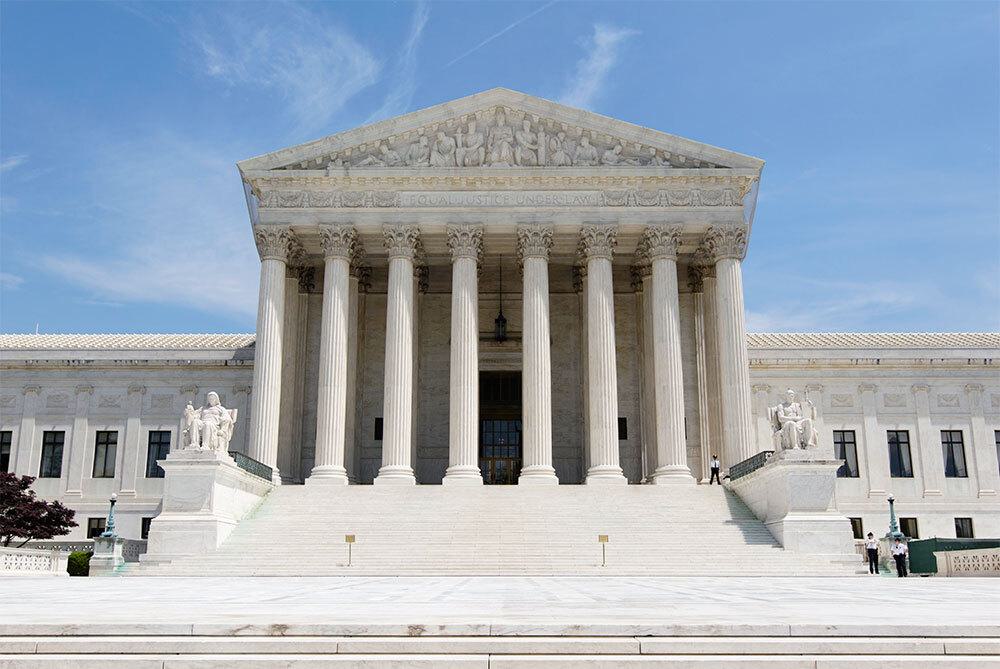On Monday, the Supreme Court will be hearing what I consider to be the most important case of this term: 303 Creative v. Elenis. Unless you’re a legal geek like me, you probably haven’t heard of this case. But if you’re concerned about threats to religious liberty from the LGBT front, then this is one you’ll definitely want to watch.
The facts of this case shouldn’t be surprising if you’ve been following Supreme Court cases like these over the last 10 years. Lorie Smith is a Christian creative professional in Colorado who designs custom websites for couples to celebrate their weddings. (Confession: I didn’t even know this was a thing until my wife introduced me to The Knot when we were engaged. If you’re a guy and you’re getting married, just let her do the planning; what you don’t know can hurt you. But I digress.)
Ms. Smith wants to run her business in accordance with her religious beliefs, and therefore she cannot create these websites for same-sex weddings in good conscience. The state of Colorado had a problem with that, resulting in a fight over that state’s law, which prohibits “discrimination” on the basis of sexual orientation. The lower court ruled that she had to make those websites or go out of business. Fortunately, the Supreme Court agreed to take her case. I was honored to file an amicus brief supporting her. The Court will be hearing oral argument on Monday.
In what might come as a surprise to many, the central issue here is not freedom of religion but freedom of speech. That may seem counterintuitive to many folks whose minds have not been warped by years of lawyering. (Seriously…y’all are the normal ones, not us.) So if that strategy doesn’t make sense, let me explain.
In 1990, the U.S. Supreme Court held that when a law that doesn’t necessarily target religion happens to infringe on religious exercise, the Free Exercise Clause generally does not protect freedom of religion. That would have come as a shock to James Madison, the primary Framer of the First Amendment, as I explained in last week’s op-ed. When religious freedom wins in court nowadays, it’s usually because the government was (1) showing explicit hostility towards religion (like calling Christians Nazis) or (2) applying the law unequally (like when Home Depot can stay open during a pandemic but churches can’t).
But while the Free Exercise Clause has been gutted in recent years, the Free Speech Clause has enjoyed robust protection. One of the core tenets is that the government may not prohibit somebody from speaking just because it does not like his or her viewpoint. It has also held that the freedom of speech includes the right not to speak, especially when you’re being forced to speak a message with which you strongly disagree. Robustly protecting freedom of speech in these ways has been one of the few things on which conservatives and old-school liberals have been able to agree. As far as I can tell, all the Court’s conservatives agree on this point.
Thus, with a five-justice majority (and as unpredictable as he can be, I think Chief Justice Roberts is with us on this), the Court should have no problem applying these principles in a way that defends Smith’s right not to speak a message with which she disagrees. If she wins, then it would also be a victory for Christian cake-bakers, florists, and the like who have been subject to similar persecution. In other words, this free-speech case could be the biggest religious-freedom case of the century.
This would be good news for everyone concerned that the Respect for Marriage Act could put them in the crosshairs. It’s also good news for Christian creative professionals in Birmingham and Montevallo who do not want to be punished under those cities’ nondiscrimination ordinances for declining to celebrate a same-sex wedding. Should the governments of those cities threaten Christians who simply want to refrain from promoting same-sex weddings, the law is already heavily slanted in their favor. A victory in 303 Creative would be the final nail in the coffin for the commissions in those cities who wish to stamp out dissent.
Matt Clark is the President of the Alabama Center for Law and Liberty, a conservative nonprofit law firm that fights for limited government, free markets, and strong families in the courts. His column appears every Friday in 1819 News. The opinions expressed in this column are those of the author. The views and opinions expressed here are those of the author and do not necessarily reflect the policy or position of 1819 News. To comment, please send an email with your name and contact information to Commentary@1819News.com.
Don't miss out! Subscribe to our newsletter and get our top stories every weekday morning.










